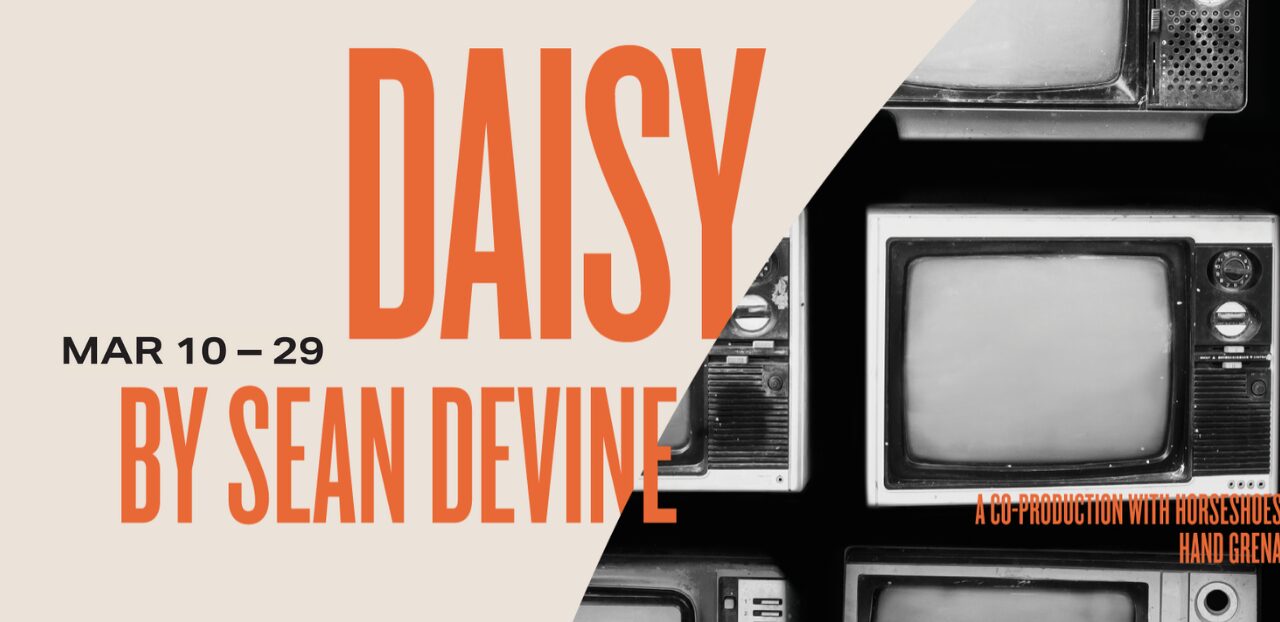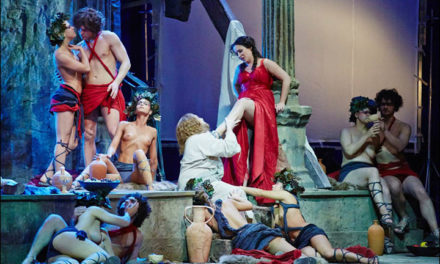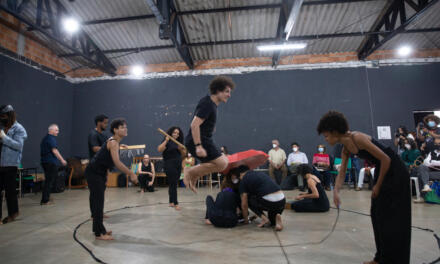It’s been a strange few weeks.
Despite the unprecedented scope of this cultural wound, I write to my city from a place of optimism – from an internal ache for community and togetherness. I write in knowing regard of the healthcare professionals sacrificing their wellbeing for my own; I write with gratitude, from the comfort and safety of my Centretown living room.
I write to express how deeply I miss theatre. It has taken these two-ish weeks to grieve its former omnipotence in my life; no longer can I (like many of my friends and co-saboteurs) define my personhood solely by its business, its preoccupation with dramaturgy and semiotic resonance. My evenings aren’t spent in the dark of the Babs Asper or the GCTC; they’re occupied with growing anxiety at the abysmal state of my arts-sustained bank account.
I write, though, because I know that we will survive this – that our theatre will evolve, and perhaps even thrive. A few displaced productions will be lost to the panic, and for this, I express the most supreme of empathy and commiseration; the precarity of my beloved art form does not escape me at this time. Some productions, however, saw the briefest glimpse into COVID-19; they opened in its earliest days of panic, with a surplus of crinkly gloves and hand sanitizer. We can’t be sure such shows will come back to the fullest of their imagined capacities, but we must still acknowledge that they happened – that even in their truncated state, they are ever-deserving of archival within the critical sphere.
To the GCTC, I say firmly: Sean Devine’s Daisy deserved more than it got (which was one preview and one public opening, though it may be extended, depending on the evolution of global events). The piece, a slick snapshot of the American political bubble in the 1960s, begs for discourse – for audiences en masse to make connections between the New York story and its Canadian performance context. Devine’s play explores the liminal space between hope and cynicism – truth and myth. Eric Coates’ direction is its usual, pleasing self, studded with performances from Ottawa favorites like Geoff McBride and Brad Long.
Daisy presupposes audience familiarity with American politics; this creates a delicious tension between the source text and the GCTC mandate for theatre that “provokes examination of Canadian life and our place in the world.” Daisy has an evident Canadian tilt to it; it’s nearly voyeuristic in this context, offering a Canadian take on American issues to a Canadian audience. There’s, of course, a provocation there: does Canada’s political world mirror that shown to us in the 1960’s US, one spackled in deceit and showmanship? Do our political advertisements carry with them that same burden of only-maybe-truth? Sean Devine has offered a play that comes with the inseparable task of scrutiny from audiences; such critical thinking is a blessing and strengthens the play’s inner, conflicted core.
Daisy’s video design by Frank Donato is exquisite and operates in ever-so-satisfying harmony with Coates’ direction. The constant image of this production is in perpetual conversation with itself, blurring and tightening into the claustrophobic center that is Tony Schwartz’s basement apartment. These visuals, coupled with cacophonous sound in time to Louise Brown’s tangled web of falsehoods, make for an uncomfortable glimpse into the brunt of the human condition. Daisy is a fluid dance between its script and its execution; we as an audience can’t help but be seduced.
It likely goes without saying: if Daisy comes back in April, see it. Support local theatre companies as you’re able; they’ll need it as they restructure and re-adapt to the irrevocably-shifted world around them. GCTC is a vital player within the Ottawa-Gatineau theatrical landscape, continually starting the conversations we as a populace otherwise might not have the courage to have. Daisy asks us to choose between our optimism and our pessimism; I have taken this challenge head-on, opting to stay tethered to the future of Ottawa theatre, even in these uncertain and disquieting times. I implore you, reader, someone still seeking theatrical reviews in the grips of a global pandemic, to do the same; our theatre will be all the better for our sustained belief in its continuation.
This article was originally posted at CapitalCriticsCircle.com on March 28, 2020, and has been reposted with permission. To read the original article, click here.
This post was written by the author in their personal capacity.The opinions expressed in this article are the author’s own and do not reflect the view of The Theatre Times, their staff or collaborators.
This post was written by Aisling Murphy.
The views expressed here belong to the author and do not necessarily reflect our views and opinions.


















